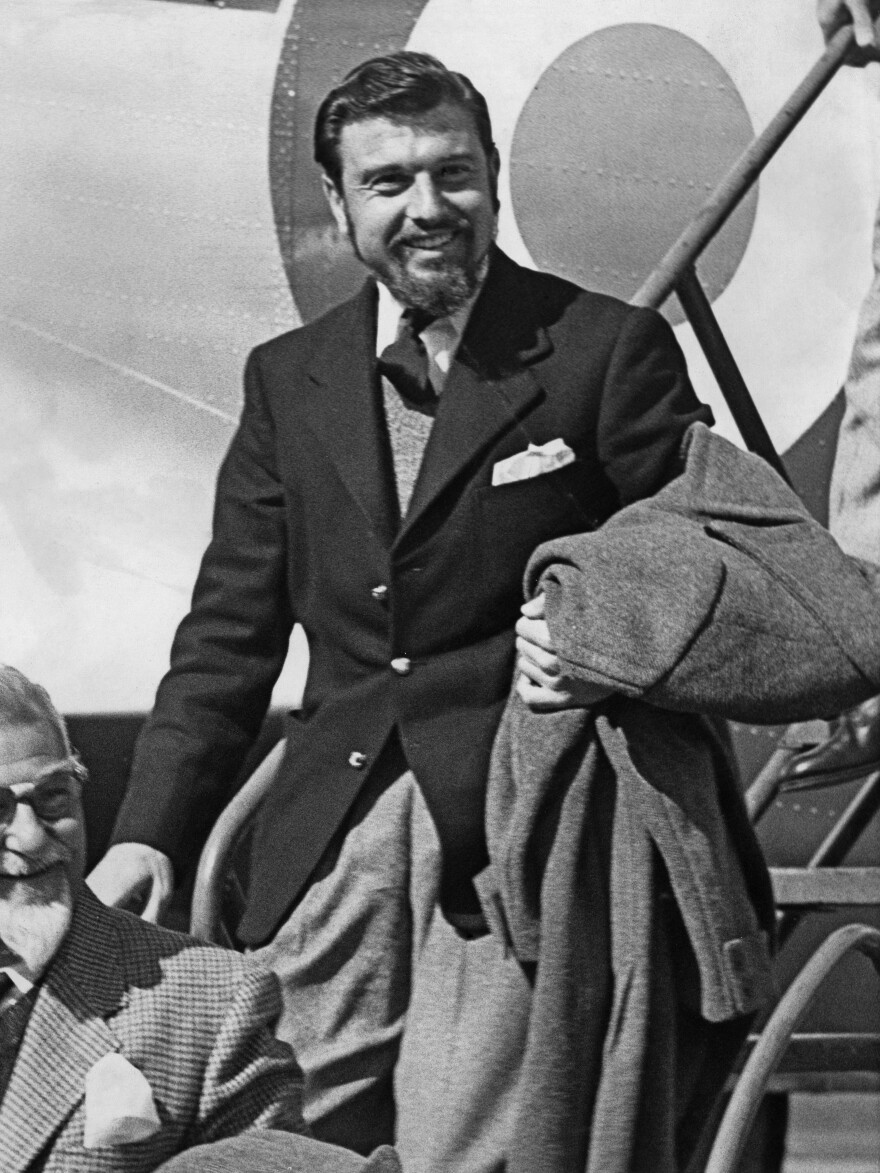George Blake, the former British spy-turned-KGB double agent during the height of the Cold War, was buried Wednesday in Moscow, honored as a Russian national hero. The KGB mole escaped a U.K. prison in 1966 and fled to the Soviet Union.
Blake died Saturday in Moscow at the age of 98.
The Soviet Union bestowed many decorations on Blake, awarded him a pension and provided him with an apartment. He was named a KGB colonel. A Russian espionage official called him a role model.
"Colonel Blake was an outstanding professional of special courage," Russian President Vladimir Putin — a former KGB operative himself — said in a statement after Blake's death. "He made a truly invaluable contribution to ensuring the strategic parity and the preservation of peace on the planet. Our hearts will always cherish the warm memory of this legendary man."
Over the course of his career as a double agent, Blake gave up the identities of hundreds of British spies, some of whom were executed.
Blake said in 1991 he regretted the deaths of the agents but not spying for the Soviets, according to The New York Times. Later he denied responsibility, telling CBC Radio that he was assured no one was executed based on the information he gave.
Blake was born in the Netherlands, where he lived for years before he was evacuated to Britain during World War II. He then joined British intelligence. He was working in South Korea in 1950 when North Korea invaded, capturing him and other Westerners.
In various interviews, Blake said watching the American bombings of Korean cities and villages during the war made him feel he was on the wrong side.
So he made an offer.
By his account, Blake volunteered to give the KGB information — not out of coercion or for money — but because he believed in the cause. He was later released by North Korea along with other captives.
"I justified it in my mind by believing that I was helping, in a small way, in building a new society," Blake told PBS in 1999, "in which there would be equality, social justice, no longer any war, no longer any national conflict — that was my dream, as it were."

Blake was repatriated to Britain after three years in captivity in North Korea, and welcomed back as a national hero. He again worked as a British agent and was stationed in Berlin, where he secretly fed a high volume of classified information to KGB agents.
In addition to revealing identities of British spies, Blake leaked information about the Berlin Tunnel, a failed effort to tap Red Army communications in East Berlin.
He remained undetected for a number of years. During that time Blake married and had three children — all while keeping his double life a secret.
It wasn't until 1961 that Blake was caught and thrown in prison, according to The Guardian. He was sentenced to 42 years but made a daring escape five years after being convicted.
Friends he made inside prison helped to construct a rope ladder of knitting needles, which was thrown over the wall. Blake broke a window and used the ladder to escape.
Blake hid with friends before fleeing to Moscow. There, he adopted the identity of Col. Georgiy Ivanovich Bleyk, according to The Times. He remarried (he and his first wife divorced when he was in prison) and had a child.
Blake's children from his previous marriage later visited him in Russia and reconciled with their father. He once described his time in Russia as the happiest years of his life.
Despite all his time as a mole, Blake dismissed the idea that he betrayed Britain.
"To betray, you first have to belong," he once said. "I never belonged."
Blake acknowledged in his interview with PBS that communism in Russia never amounted to what he had hoped. It was a perfect system that an imperfect society could not carry out, he said.
The reporter asked: Despite this, was it worth dedicating his life to the cause?
"Yes," he answered, "because I think it is never wrong to give your life to a noble ideal, and to a noble experiment, even if it doesn't succeed."
Copyright 2021 NPR. To see more, visit https://www.npr.org.


